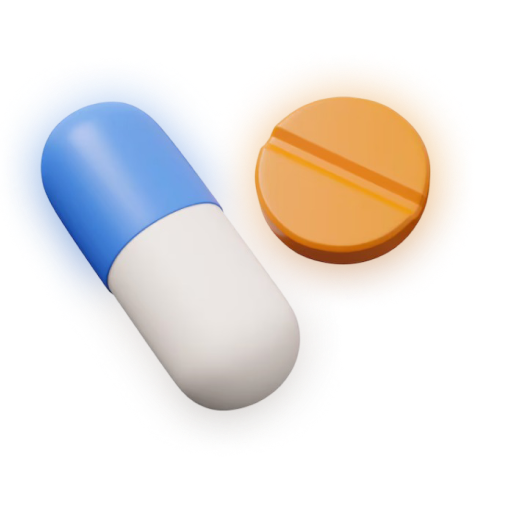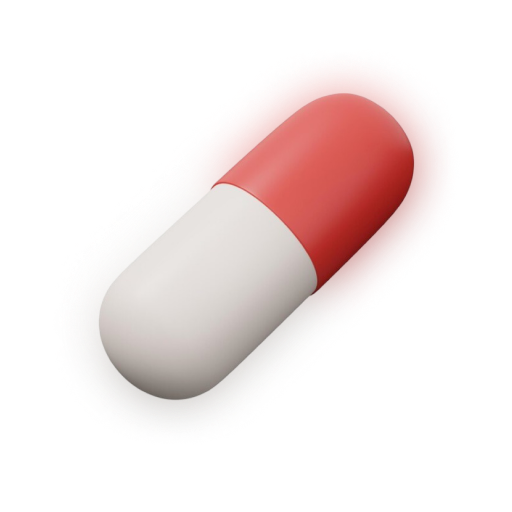Gynokadin 2 mg Tablets 100 Stk (Estradiol)
Hormone Replacement Therapy (HRT)


Description
Generic Name: Estradiol
Brand Name: Gynokadin
Drug Class: Estrogen, natural estrogen hormone replacement
This is a prescription medicine, which requires a valid prescription!
Indications
- Postmenopausal Hormone Replacement Therapy (HRT):
- Relief of moderate to severe menopausal symptoms: hot flashes, night sweats, vaginal dryness, mood swings.
- Prevention of osteoporosis in postmenopausal women at risk of fractures and intolerant to or contraindicated for other osteoporosis treatments.
- Estrogen Deficiency:
- Management of hypoestrogenism due to hypogonadism, castration, or primary ovarian failure.
- Management of hypoestrogenism due to hypogonadism, castration, or primary ovarian failure.

Gynokadin contains micronized 17β-estradiol, which is chemically identical to the endogenous estrogen produced by the ovaries. It works by:
- Binding to estrogen receptors in tissues like bone, brain, and the urogenital tract.
- Alleviating vasomotor symptoms (hot flashes, sweating).
- Restoring vaginal and urinary tract health.
- Inhibiting bone resorption, helping maintain bone density.
- Form: Oral tablets, 2 mg estradiol
- Starting Dose: 1–2 mg daily (depending on symptom severity), adjusted individually.
- Maintenance Dose: Lowest effective dose for shortest duration.
- Cycle Options:
- Women with a uterus: Combine with a progestogen for at least 12–14 days per 28-day cycle to protect against endometrial hyperplasia.
- Women without a uterus: Estradiol monotherapy may be used continuously.
- Women with a uterus: Combine with a progestogen for at least 12–14 days per 28-day cycle to protect against endometrial hyperplasia.
- Administration: Take one tablet daily at the same time with or without food.
- Common:
- Nausea, bloating
- Breast tenderness or swelling
- Headache
- Irregular vaginal bleeding or spotting
- Mood changes, irritability
- Serious (rare):
- Stroke or myocardial infarction
- Venous thromboembolism (VTE): DVT, PE
- Endometrial hyperplasia or carcinoma (when unopposed by progestogen)
- Breast cancer (risk increases with duration of use)
- Gallbladder disease
- Liver dysfunction
- Stroke or myocardial infarction
- Known or suspected estrogen-dependent malignancies (e.g., breast or endometrial cancer)
- Active or history of venous thromboembolism (deep vein thrombosis, pulmonary embolism)
- Undiagnosed abnormal vaginal bleeding
Information
Warnings and Precautions:
- Endometrial Safety: Use a progestogen in women with an intact uterus to prevent endometrial cancer.
- Cardiovascular Risk: Increased risk of stroke, heart attack, and VTE in postmenopausal women, especially over 60.
- Breast Cancer: Use lowest effective dose; regular screening recommended.
- Liver Function: Contraindicated in women with active liver disease.
- Undiagnosed Vaginal Bleeding: Must be evaluated before starting treatment.
- Pregnancy and Lactation: Contraindicated.
Drug Interactions:
- CYP3A4 Inducers (e.g., carbamazepine, phenytoin, rifampicin): May reduce efficacy of estradiol.
- Thyroid Hormone Replacement: Estrogens may increase thyroxine-binding globulin, requiring dose adjustment of levothyroxine.
- Anticoagulants (e.g., warfarin): Monitor INR if co-administered.
Request Now
Direct Enquiries
For any inquiries, please feel free to contact us directly via email at the link below.
pharmacy@doctorworld.eu
PLEASE AVOID SELF-DIAGNOSIS AND SELF-MEDICATION!
Our website content is posted for informational purposes only. It is not intended to be used for primary diagnoses-making and should not replace a consultation with a professional health care provider. If you have any health issues or complaints, please consult your primary physician.
Health care data provided for informational purposes is not an alternative to an in-person physician consultation.